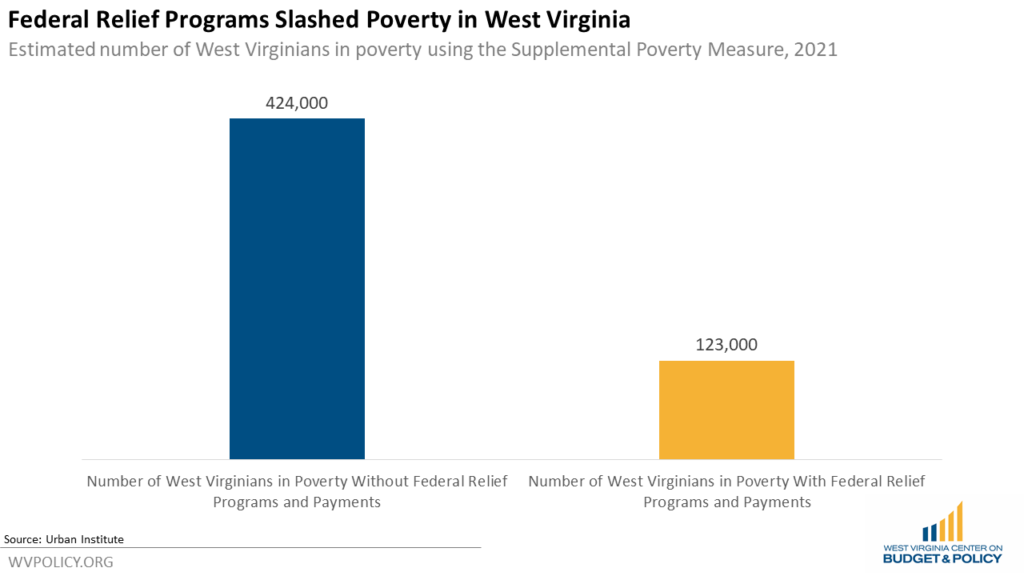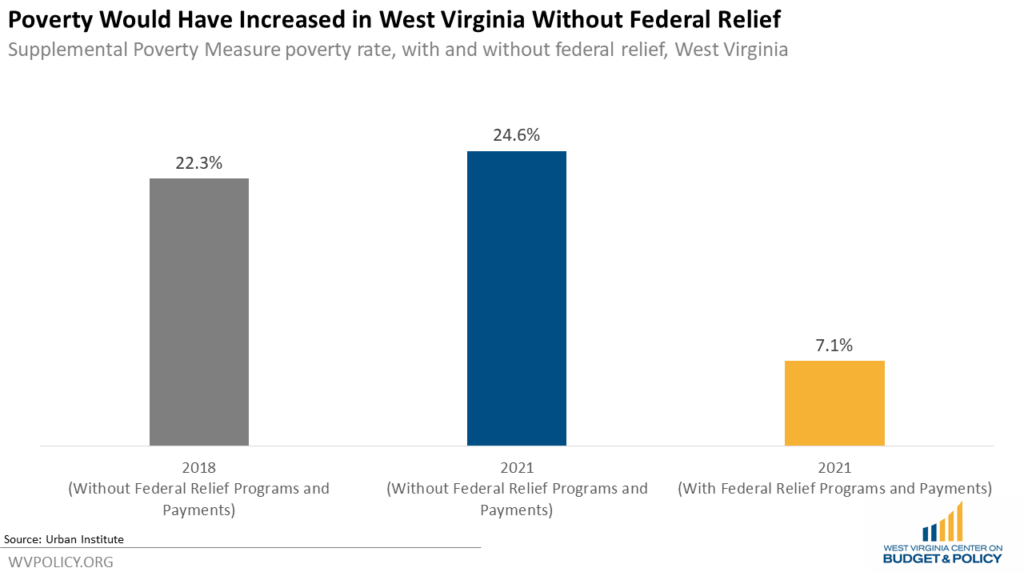Thanks to the programs enacted through COVID-related federal relief legislation this past year, an estimated 301,000 fewer West Virginians were living in poverty this year than would have been otherwise, a reduction of 71 percent, according to an analysis from the Urban Institute estimating the state’s Supplemental Poverty Measure.

The Supplemental Poverty Measure (SPM) measures poverty after taking into account various sources of income not considered in the official poverty rate, including food stamps, subsidized school lunches, housing assistance and other assistance programs, as well as both payroll taxes and refundable tax credits.
The Urban Institute analysis estimated what the poverty rate would be this year in each state with and without 11 anti-poverty programs many of which were COVID-related, including enhanced unemployment benefits, enhanced SNAP benefits, the advanced child tax credit, and stimulus payments.
Without these programs, the Urban Institute estimates that the share of West Virginians living in poverty would have risen from 22.3 percent in 2018 to 24.6 percent in 2021. Instead, the federal relief programs contributed to a substantial reduction of poverty, with only 7.1 percent of West Virginians living in poverty after accounting for the 11 federal relief programs.

The analysis also found that the federal stimulus checks, enhanced unemployment benefits, and SNAP have the largest antipoverty effects. These benefits have kept many families above the poverty threshold, including families with workers who lost jobs in the recession as well as families who were impacted in other ways resulting in resources falling below the poverty threshold without the pandemic-related benefits. In addition, the analysis also found that children throughout the country experienced the largest poverty reduction, dropping from a poverty rate of 30.1 percent without the past year’s programs and payments to 5.6 percent with them. Black Americans also saw a significant reduction in poverty due to the federal relief programs, from 36.0 percent to 9.2 percent.
West Virginians have weathered significant hardship throughout the pandemic and economic downturn. But the federal relief packages passed last year provided significant relief to that hardship. However, many of those vital supports are expiring soon, or were prematurely ended. Enhanced unemployment benefits and eligibility, enhanced SNAP benefits, and the improved Child Tax Credit should all be extended or made permanent, or the decline in poverty could be reversed. The American Families and Jobs Plans provide an avenue to build on those successes, permanently cut poverty and improve opportunity in West Virginia.